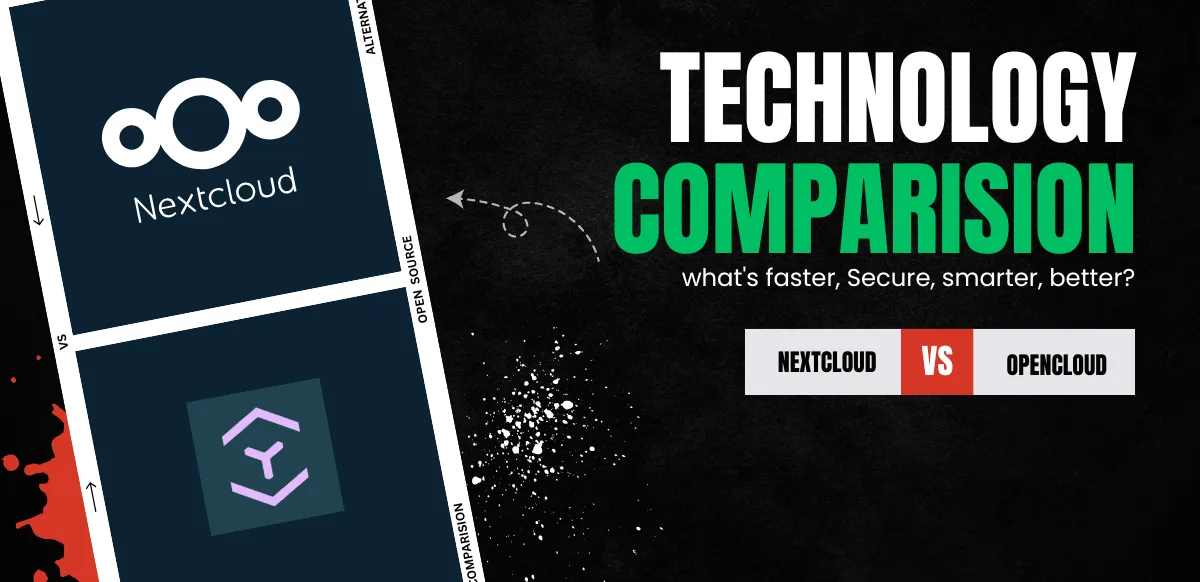
OpenCloud vs Nextcloud: Which Private Cloud Solution Should You Choose?
If you’re searching for a secure and private cloud solution, you’ve probably come across the debate of OpenCloud vs Nextcloud. Both platforms offer ways to store, sync, and share files across your devices while keeping full control of your data.
This guide will walk you through the key differences to help you choose the right option for your personal or business needs.
What Are OpenCloud and Nextcloud?
OpenCloud
OpenCloud is a lightweight, self-hosted cloud storage platform. It’s designed for simplicity and works well for basic file sharing and storage. It’s ideal for users who prefer minimal setup and just want their data in their own hands.
Nextcloud
Nextcloud is a full-featured open-source cloud suite. It offers everything from file storage and syncing to video calls, calendar sharing, collaborative document editing, and more. It’s popular among businesses, schools, and individuals who need advanced features.
Installation and Setup
OpenCloud
- Easy to install
- Minimal configuration
- Runs on low-resource servers
- Great for beginners
Nextcloud
- Slightly more advanced setup
- Docker, Snap, or manual install options
- Requires more resources
- Well-documented
Verdict:
OpenCloud is easier for quick setup. Nextcloud is more robust but takes a bit more time to install and configure.
Key Features Compared
OpenCloud
- File storage and sharing
- Clean and simple user interface
- Works well on small servers
- Basic user management
Nextcloud
- File syncing across devices
- Group folders and permission control
- Built-in video chat (Talk)
- Office tools, calendar, and email integrations
- App store for extensions
- End-to-end encryption
Verdict:
Nextcloud offers a complete suite of tools, while OpenCloud focuses only on core file storage.
Security and Privacy
OpenCloud
- HTTPS supported (if configured)
- Basic user roles
- No built-in two-factor authentication
- Manual security setup required
Nextcloud
- Two-factor authentication (2FA)
- End-to-end encryption
- GDPR compliance features
- Access logs and permission control
- Regular security updates
Verdict:
Nextcloud provides a more secure and privacy-focused environment out of the box.
Device and App Support
| Platform | OpenCloud | Nextcloud |
|---|---|---|
| Web Access | ✔️ | ✔️ |
| Mobile App | ❌ | ✔️ iOS & Android |
| Desktop Sync | ❌ | ✔️ Windows, Mac, Linux |
Verdict:
Nextcloud offers complete cross-platform support. OpenCloud is web-only for now.
Extensibility and Community Support
OpenCloud
- Small GitHub community
- Few plugins available
- Basic support channels
Nextcloud
- Large global community
- Wide range of apps and extensions
- Developer-friendly
- Active forums and GitHub
Verdict:
Nextcloud is a better choice for users who want to customize their setup and get community help.
Hosting and Cost
Both platforms are open-source and free to use. Costs depend on your hosting provider and maintenance preferences.
OpenCloud
- Lightweight: works on shared hosting or VPS
- No enterprise version, minimal running cost
Nextcloud
- Requires more server resources
- Free to self-host, with paid enterprise support available
- Many hosting providers offer pre-installed Nextcloud
Verdict:
OpenCloud is more affordable for small setups. Nextcloud gives you more tools but may need more investment in hosting.
Use Case Summary
| Use Case | Best Platform |
|---|---|
| Personal File Backup | OpenCloud |
| Team Collaboration | Nextcloud |
| Schools and Institutions | Nextcloud |
| Simple File Sharing | OpenCloud |
| Office Suite Replacement | Nextcloud |
| Low Server Resources | OpenCloud |
Summary Table: Feature Comparison
| Feature | OpenCloud | Nextcloud |
|---|---|---|
| Setup Difficulty | Easy | Moderate |
| Features | Basic | Extensive |
| Mobile/Desktop Apps | No | Yes |
| Security Tools | Basic | Advanced |
| Community Support | Limited | Strong |
| Customization | Minimal | High |
| Ideal User | Individual | Teams & Businesses |
Conclusion: OpenCloud or Nextcloud?
Choose OpenCloud if you’re looking for a simple, lightweight solution to store and access files privately. It’s great for individuals or small teams who don’t need advanced tools.
Go with Nextcloud if you need full control, advanced features, and team collaboration. It’s the go-to choice for businesses, educators, and privacy-conscious users who want more than just file storage.
Still unsure? Try setting up both on a test server and explore what works best for your daily workflow.

